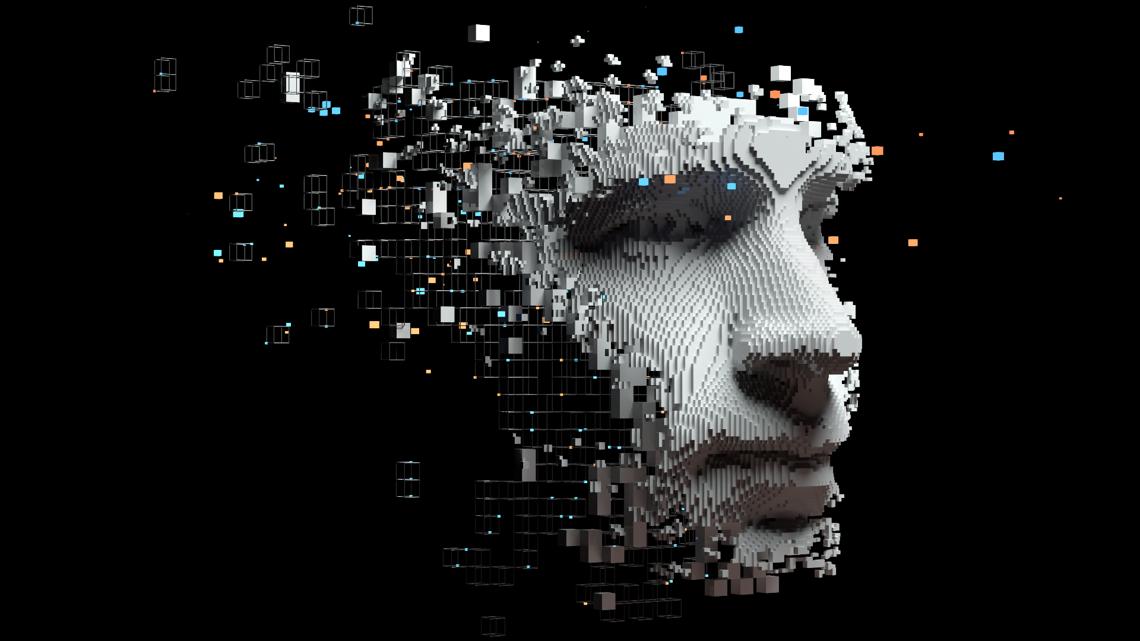Content created with artificial intelligence is getting more convincing, and fast
AI-created images, video, audio and text are already being used to spread disinformation heading into the 2024 election. Here's what to know and how to spot it. Artificial intelligence (AI) creating images, video, audio and text is being used to spread disinformation ahead of the 2024 election. The author, Pat Tompkins, stated that AI is moving so fast that it is causing significant disruption but tools for detecting it have not moved with the same speed. The most disruptive forms of AI are what we call multimodal AI, which can simultaneously change audio and video and text simultaneously. Despite this, Tompkin believes that AI can be used in almost every industry to provide useful solutions for issues such as productivity and efficiency. He urged scepticism and skepticism, stating that AI isn't the work of the devil and that it will make our life more productive in important ways.

Pubblicato : 4 settimane fa di Pat Dooris in Tech
AI-created images, video, audio and text are already being used to spread disinformation heading into the 2024 election. Here's what to know and how to spot it.
"This technology has moved so fast, I mean faster than any technology in my lifetime," Tompkins told Dooris in a recent interview. "We've gone from, you know, basically Alexander Graham Bell to cell phones in maybe a year or so. So the technology is moving very, very quickly. And here's what's interesting — that this technology is moving so fast and causing so much disruption already, but the tools that we need to detect it have not moved with the same speed. And I compare this, sometimes, if you remember when we really started using email all the time and it really took a number of years of getting so much spam email for us to start getting email spam detectors."
"Photoshop tools and so on have used a version of AI, a kind of AI, for quite a number of years," Tompkins explained. "AI in its most basic form only does one thing ... But the newer versions of AI, now the ones that are most disruptive, are what we call multimodal AI, so they can change audio and video and text simultaneously. It's not just one thing, it's a bunch of things that you can change all at one time."
"If, for example, you have a grammar check that comes on and looks at your text and replaces words for you or suggest words, that's a form of artificial intelligence. It's just that it would only do one thing at a time," Tompkins continued. "And this is also a good time for us to say, Pat, that AI isn't the work of the devil. I mean, I think we're going to see that AI actually does some wonderful things and that it's going to make our life much more productive in important ways. Virtually every industry is going to find some useful way of using artificial intelligence if they're not already, because it will take care of things that we need to be taken care of."
"It turns out these sculptors of old knew a lot. Michelangelo knew a lot. And it turns out that they sculpted hands and fingers all the time because they're so difficult to do — partly because there's not a consistent algorithm between the size of your fingers, and they grow at different rates as you get older and younger, and so on ... AI often makes big mistakes with fingers. Commonly we'll chop off fingers or we'll add fingers and so on. So, hands are sometimes, they're way too big for the person too, so I call them gorilla hands."
Where do we go from here?
"This election year, it's going to be very tempting for you to say, 'Everybody's a liar, every politician is a liar, everybody's a liar, they're all lying to me. I don't believe anybody. I'm just going to live in my shell and forget about it or I'm never going to change my mind because I have no idea who else is right. So I'm just going to trust my gut and I'm going to quit exploring,'" Tompkins said. "That's not the way to live. Because that is cynicism — you don't believe anything.
"Instead, I'd rather us all be skeptics, and that is open to truth. Stay open to truth. Stay open to proof, because that's what the smart people do. Smart people are constantly learning. They're constantly open to evidence. Don't shut down from the evidence when something isn't true but it's widely circulating. I think it's part of our civic duty to call it out, to say, 'You know what, I'm seeing this circulating. It's just not true. And here's how I know it's not.' And that's not being unkind. It's not being rude. You don't have to be mean to anybody. Just say, 'Listen, this is circulating. And here's how I know it's not true.' Or, 'Here are some questions I would ask about that.'"
Temi: AI
